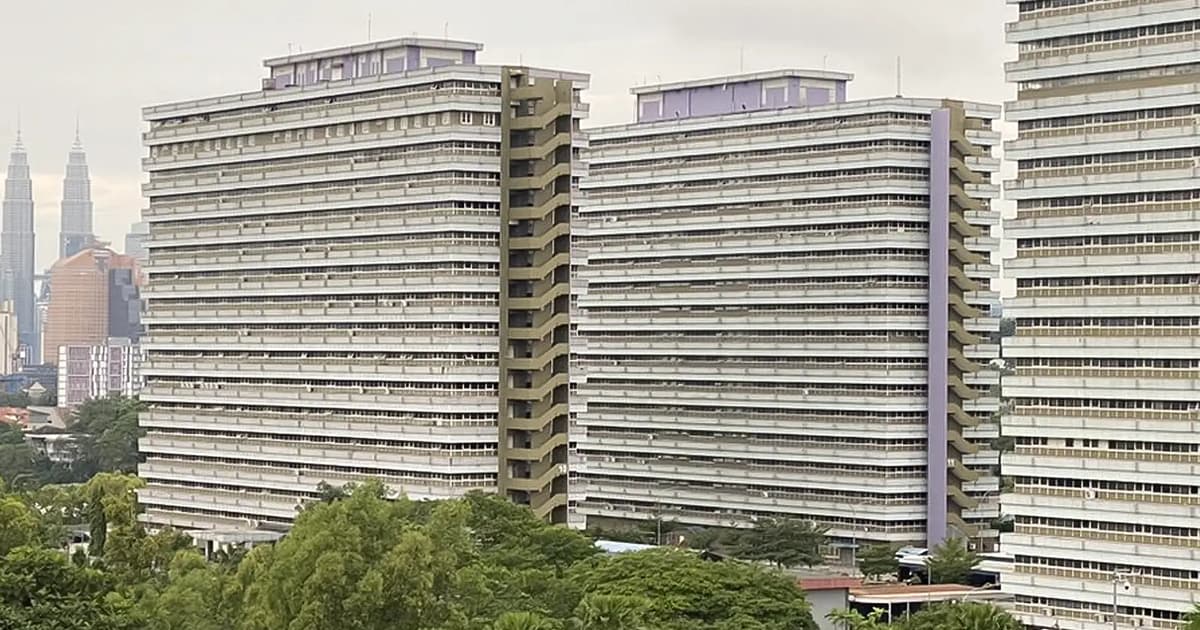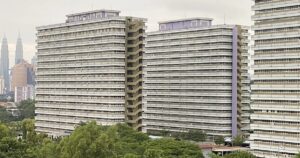
The Federal Court will decide on Nov 13 whether Semantan Estate Sdn Bhd can proceed with its appeal against a Court of Appeal ruling ordering the government to compensate the company for occupying a 106-hectare parcel of land in Kuala Lumpur, known as the Duta Enclave, nearly 70 years ago.
A three-member bench chaired by Chief Judge of Malaya Hasnah Hashim said the panel needed time to deliberate on the submissions made by both parties.
The panel also comprised Federal Court judge Hanipah Farikullah and a co-opted Court of Appeal judge.
Semantan Estate has filed 26 questions of law in its bid to obtain leave to appeal the Court of Appeal’s unanimous June 25 decision.
In that decision, Justice Lee Swee Seng, now a Federal Court judge, allowed the government’s appeal and ruled that monetary compensation was a more appropriate remedy than requiring the authorities to transfer ownership and possession of the land to Semantan Estate.
Justices Azimah Omar and Wan Ahmad Farid Wan Salleh, now the chief justice, also sat on the panel.
The Court of Appeal further ruled that compensation should be based on the land’s 1956 value – the year the government took possession – and that the amount assessed by the High Court be reduced by RM1.325 million, which was paid by the government that year.
The appellate court also held that the company was entitled to mesne profits, with the quantum to be assessed by the High Court.
Additionally, it directed both the government and Semantan Estate to appoint valuation experts to determine the land’s value within 90 days from the judgment date, though this order had been stayed pending the outcome of the leave application.
The court was previously told that the land is now valued at RM12 billion.
The Duta Enclave site currently houses several government complexes, sports facilities, and other major landmarks.
During today’s proceedings, counsel for Semantan Estate, Cyrus Das, argued that the Court of Appeal failed to follow precedent, noting that the Federal Court had in 2012 affirmed a 2009 High Court ruling recognising the company’s beneficial ownership of the land.
“What the Court of Appeal did was to regularise the government’s unlawful possession and order compensation not based on current market value,” said Das, who was assisted by Ira Biswas.
He argued that this amounted to a constitutional violation of the company’s property rights, as it deprived Semantan Estate of adequate compensation for the compulsory acquisition.
Das said the company had filed a judicial review in 2016 seeking a mandamus order to compel the government to comply with the 2012 Federal Court ruling, but the application was dismissed by Justice Ahmad Kamal Shahid.
“We expected the government to comply with the 2012 decision and transfer the land title to Semantan Estate. The mandamus order was sought because this was effectively a seizure of private property,” he said.
Last year, High Court judge Ahmad Shahrir Salleh ordered the government to transfer the land to Semantan Estate after allowing the company’s suit against the Kuala Lumpur land registrar.
However, the Court of Appeal later overturned that ruling and ordered compensation under Section 29(1)(b) of the Government Proceedings Act.
Lawyer Malik Imtiaz Sarwar, appearing as amicus curiae (friend of the court) for the Malaysian Bar, said the issues raised carried constitutional implications.
Senior federal counsel Shamsul Bolhassan argued that the leave application should be dismissed, saying the questions raised were not novel.
“The issues arise entirely from the unique facts and history of the dispute,” he said, adding that the legal principles governing Section 29(1)(b) of the Government Proceedings Act, mandamus, and compensation under Article 13 of the Federal Constitution were well established.
“The June 25 Court of Appeal ruling was specific to the Semantan Estate case and does not establish or modify any general principle of law that would benefit from further determination by the Federal Court,” he said.
Shamsul further argued that even if leave were granted, Semantan Estate had poor prospects of success in the appeal.
Senior federal counsel Ahmad Hanir Hambaly, Nurhafizza Azizan, Azza Azmi, Shazreen Nadia Zulkifli, Safiyah Omar, and Nuur Zul Izzati Zulkipli appeared for the government.






